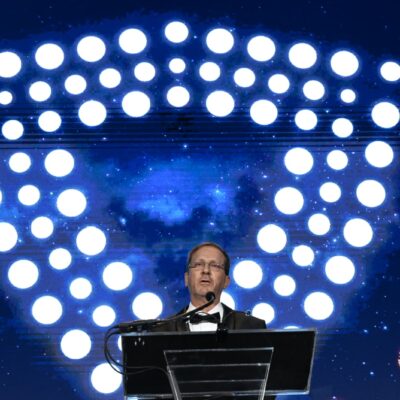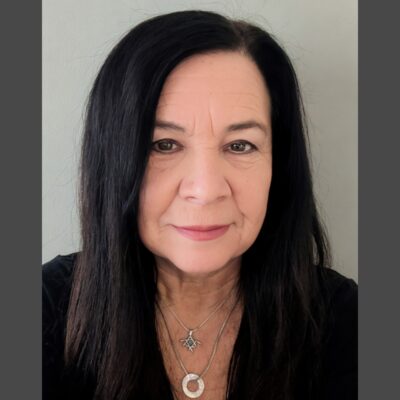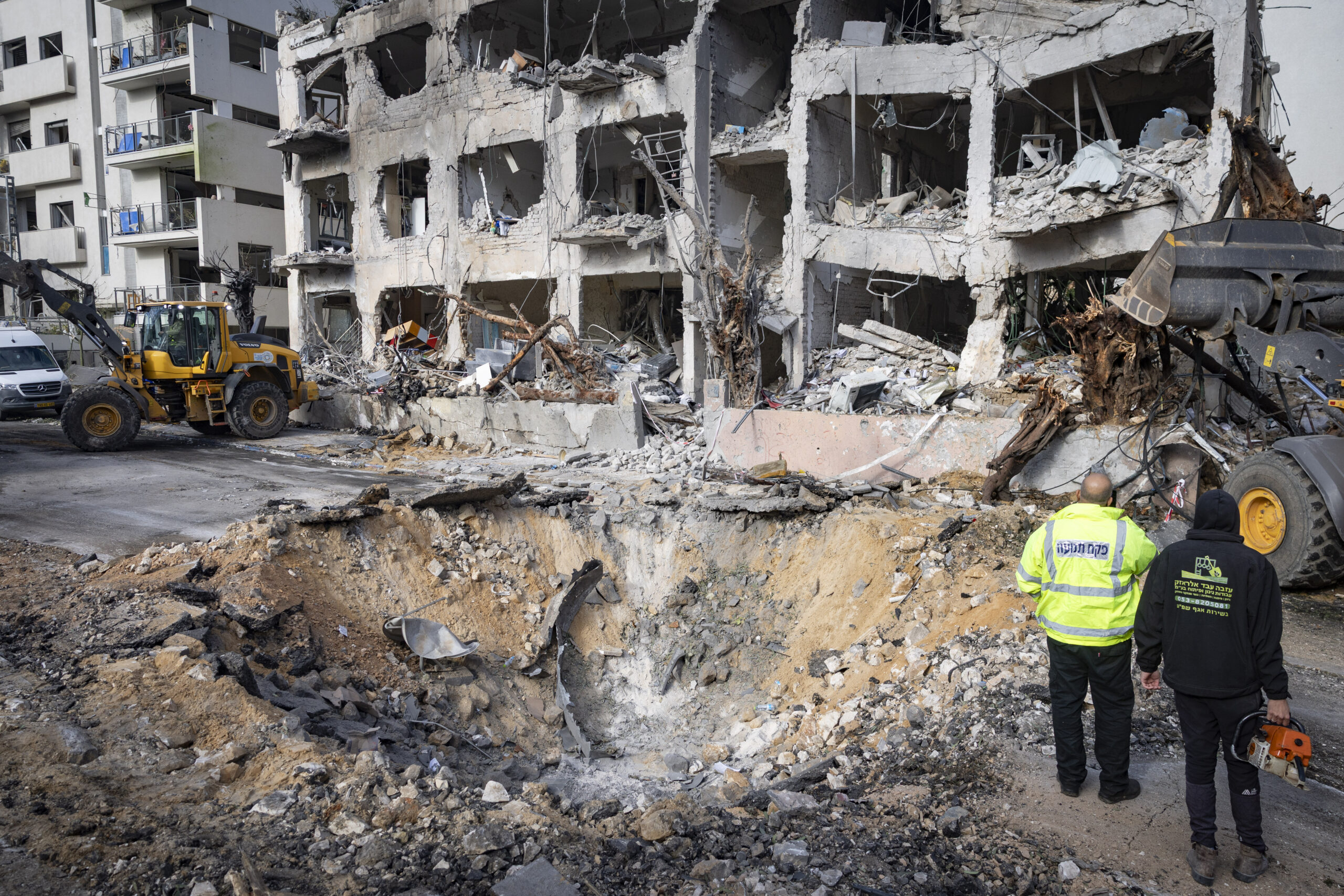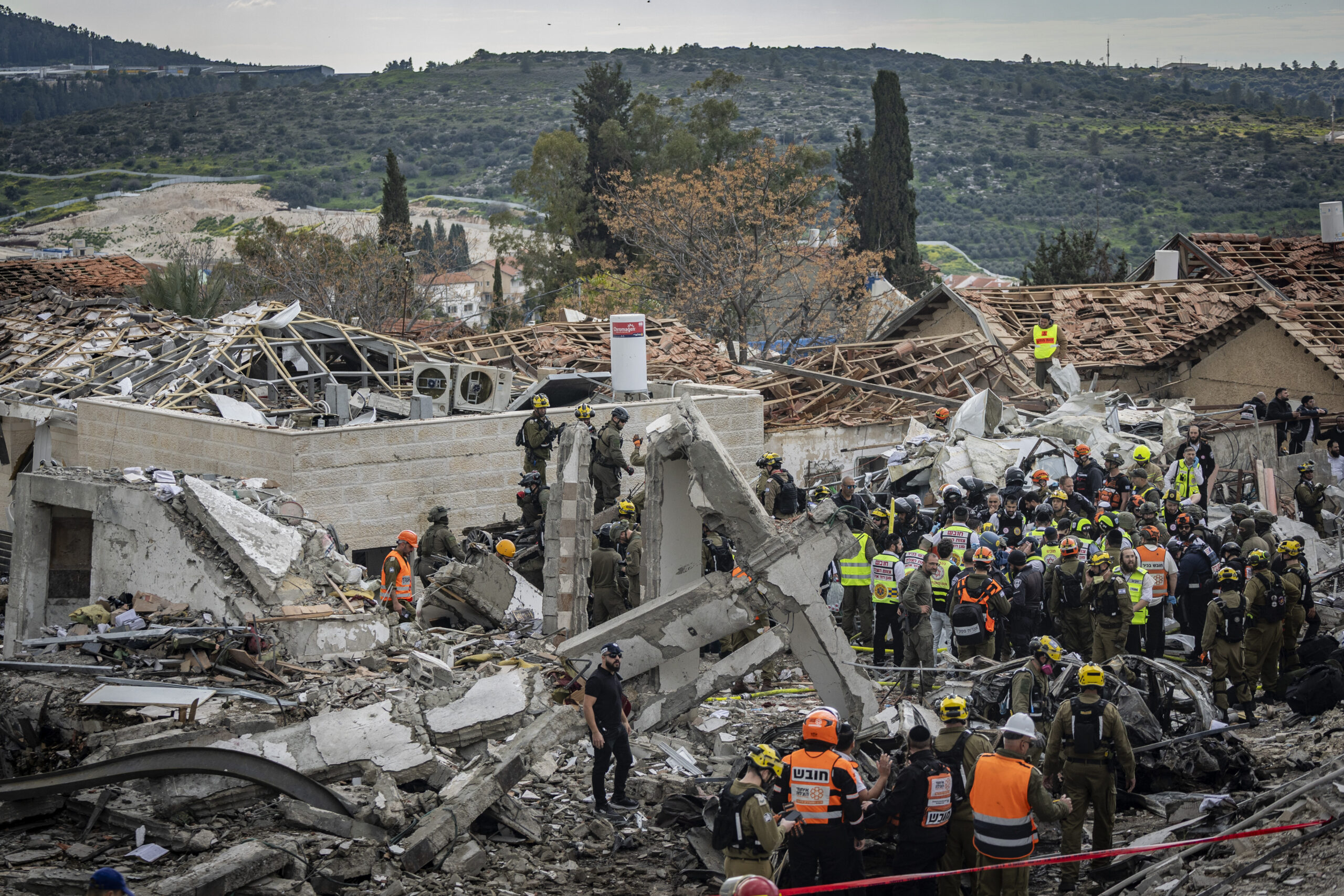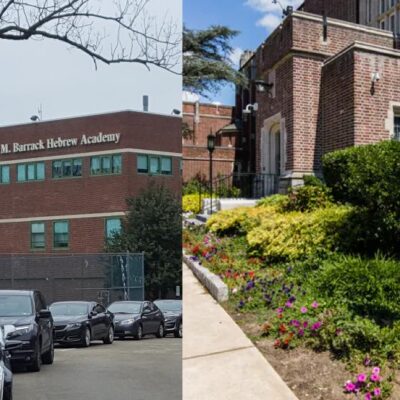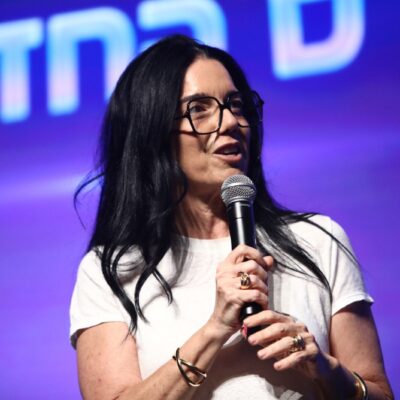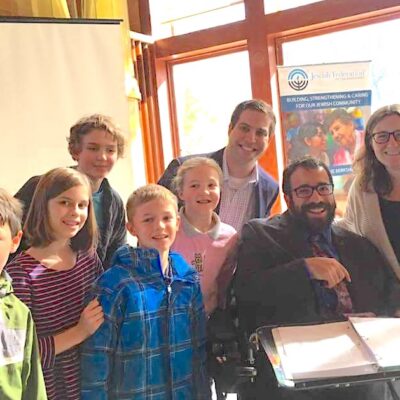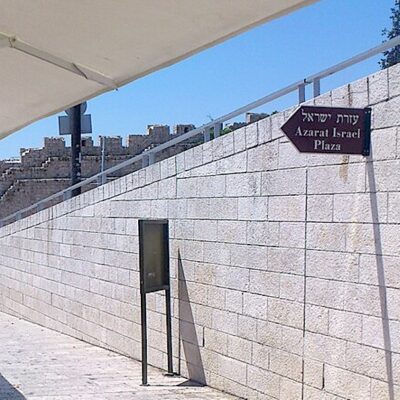BUILD BACK BETTER
KKL-JNF allocates $220 million toward rebuilding war-hit northern and southern Israel
A tenth of the funds will be allocated solely to the reconstruction of Nir Oz, the hardest hit kibbutz in the Oct. 7 attacks

Maja Hitij/Getty Images
Destroyed houses are seen in Kibbutz Be'eri in southern Israel on Dec. 20, 2023.
The Keren Kayemeth LeIsrael-Jewish National Fund approved an “irregular, multi-year budget” totaling $220 million (NIS 750 million) toward the reconstruction and rehabilitation of Israel’s Gaza border region and northern Israel. A tenth of it earmarked for the hard-hit Kibbutz Nir Oz, a quarter of whose members were murdered or taken hostage, the organization said on Monday.
“Nir Oz, which was the symbol of the devastation of the Oct. 7 attacks, will be a symbol of the reconstruction,” Ifat Ovadia-Luski, chairwoman of KKL-JNF, told eJewishPhilanthropy. “We don’t want to return [northern and southern Israel] to what they were, but to better than they were.”
The budget has been allocated from existing funds, though Ovadia-Luski said the organization would continue fundraising for particular projects with its international partners.
Since the Oct. 7 attacks, KKL-JNF has been funding projects and initiatives in war-hit areas of Israel, from smaller-scale projects, such as purchasing ambulances, to large-scale initiatives, including constructing a new neighborhood on Kibbutz Ruhama to rehouse evacuees from Kibbutz Kfar Aza, which was severely damaged in the attacks.
“Everything we could do during a time of emergency, we did,” Ovadia-Luski said. “We understood that we needed to get involved with the reconstruction. We received requests from the communities and government ministries. We understood that we need to get involved.”
According to KKL-JNF, the budget will be allocated through a “dedicated professional directorate” to projects connected to four “core” areas: community rehabilitation and expansion; economic revitalization; education and community investment; and innovation and trauma recovery.
In addition to infrastructure projects, this will include creating employment and technological innovation hubs, offering incentives to businesses, supporting formal and informal education in the regions, funding local mental health facilities and more.
The directorate will make allocations based on “clear criteria” that are primarily based on “how much the community was damaged and the distance from the border,” Ovadia-Luski said.
Nir Oz will be exempted from this process, however, in recognition of the devastation that it suffered in the attacks, which also included the almost total destruction of its public buildings.
Though the $219.6 million allocation is a multi-year budget, Ovadia-Luski said that she hoped to distribute the funds as quickly as possible, encouraging communities to come prepared with proposals and requests.
As many of the residents of communities in the Gaza-adjacent Western Negev and along Israel’s border with Lebanon that were evacuated have been hesitant to return — or refused to do so outright — a key area of focus will be placed on encouraging resettlement of these regions, Ovadia-Luski said. She noted that settling the land of Israel has been the core tenet of KKL-JNF since its inception.
This includes encouraging new immigrants, military veterans, graduates of youth movements and others to move to these areas, as well as supporting local employment and social services to make them more desirable.
Ovadia-Luski added that she hoped that an influx of young, motivated people — particularly military veterans and reservists — would give the returning residents a greater sense of security as well.Asked if KKL-JNF was also supporting those residents who will not or cannot return to their homes because of the traumatic events that they experienced there, Ovadia-Luski said that the organization was involved in some initiatives along those lines. This included supporting the construction of new housing on Kibbutz Beit Nir in central Israel, where some residents of Kibbutz Nir Oz have chosen to move.

 Add EJP on Google
Add EJP on Google

